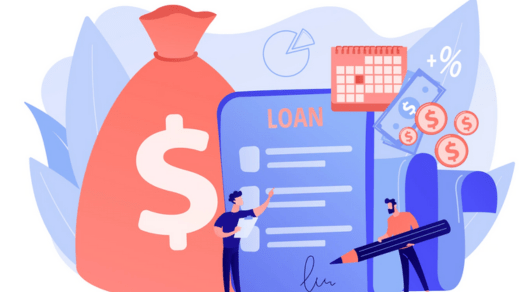
Certainly! Here are the top 10 mistakes to avoid when applying for a loan, along with 20 additional points covering the pros and cons:
Top 10 Mistakes to Avoid When Applying for a Loan
- Neglecting to Check Credit Report: Failing to review your credit report for errors before applying can lead to higher interest rates or loan denials.
- Ignoring Credit Score: Applying for a loan without knowing your credit score can result in unfavorable loan terms.
- Incomplete Application: Providing incomplete or inaccurate information on your loan application can delay the approval process.
- Overlooking Your Budget: Borrowing more than you can afford may lead to financial strain and difficulties in repaying the loan.
- Not Comparing Lenders: Failing to shop around for loan offers can result in higher interest rates and fees.
- Ignoring Loan Terms: Neglecting to read and understand the loan agreement can lead to unexpected fees or unfavorable terms.
- Applying for Too Many Loans: Multiple loan applications in a short period can harm your credit score and make you appear risky to lenders.
- Co-signing Without Caution: Co-signing for someone else’s loan can make you responsible for the debt if they default.
- Missing Payments: Late or missed loan payments can damage your credit score and result in late fees.
- Not Communicating with Lenders: Failing to inform your lender of financial difficulties may lead to more severe consequences.
Pros of Avoiding Loan Mistakes:
- Lower Interest Rates: Careful financial planning and a strong credit profile can lead to lower interest rates on loans.
- Improved Credit Score: Responsible loan management can boost your credit score over time.
- Better Loan Terms: Avoiding mistakes can result in more favorable loan terms, reducing overall costs.
- Financial Stability: Avoiding excessive debt or unaffordable loans can help maintain financial stability.
- Avoiding Legal Issues: Responsible borrowing can help avoid legal problems associated with default or fraud.
Cons of Making Loan Mistakes:
- Higher Interest Costs: Errors in the loan application or credit history can lead to higher interest rates, costing you more over time.
- Credit Damage: Missed payments or defaults can significantly damage your credit score.
- Debt Accumulation: Poor loan decisions can lead to excessive debt, making it challenging to achieve financial goals.
- Financial Stress: Loan mistakes can lead to financial stress and potential legal issues.
- Impact on Future Borrowing: Negative credit history may affect your ability to secure loans or credit in the future.
- Potential for Default: Ignoring loan terms or overextending financially can increase the risk of default.
- Relationship Strain: Co-signing for someone else’s loan can strain personal relationships if they default.
- Collection Efforts: Defaulting on a loan can result in aggressive collection efforts and potential legal action.
- Limited Financial Freedom: High loan payments can limit your ability to save or invest in other areas of life.
- Missed Opportunities: Poor financial decisions can prevent you from taking advantage of investment or business opportunities.
- Long-Term Impact: Some loan mistakes can have lasting consequences, affecting your financial future.
- Regret and Stress: Loan-related regrets can lead to stress and anxiety about your financial situation.
- Reduced Quality of Life: Financial difficulties resulting from loan mistakes can reduce your overall quality of life.
- Loss of Assets: Defaulting on secured loans can lead to the loss of valuable assets, such as a home or car.
- Potential Legal Consequences: Certain loan mistakes, especially those involving fraud or illegal activity, can lead to legal penalties.
In conclusion, avoiding common loan application mistakes is crucial for securing favorable loan terms, maintaining a healthy credit profile, and achieving financial stability. By carefully reviewing your financial situation, being mindful of your credit, and seeking professional advice when necessary, you can minimize the potential drawbacks associated with loans and make informed borrowing decisions.




